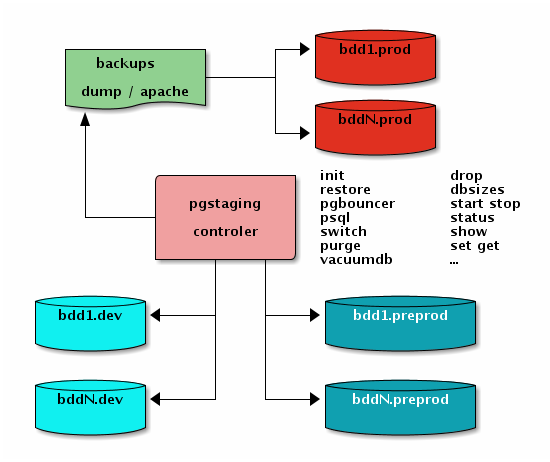One of the most important feedback I got about the presentation of pgstaging were the lack of pictures, something like a bird-view of how you operate it. Well, thanks to ditaa and Emacs picture-mode here it is:
Hope you enjoy, it should not be necessary to comment much if I got to the point!
Of course I commited the text source file to the Git repository. The only problem I ran into is that ditaa defaults to ouputing a quite big right margin containing only white pixels, and that didn’t fit well, visually, in this blog.










